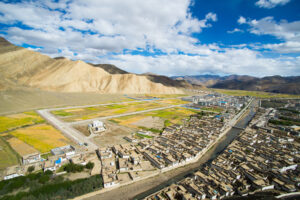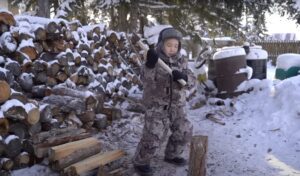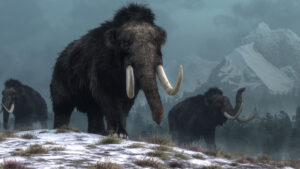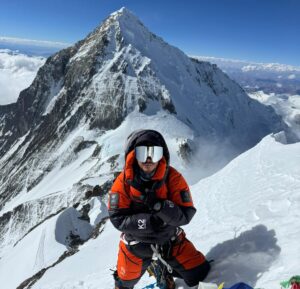Editor’s note: We also caught up later with Charlie Walker after he’d had time to digest the experience. Read the exclusive report here.
“Russia is not a safe place to travel anymore,” said Charlie Walker.
For weeks, we’ve been concerned about the fate of Charlie Walker. The UK adventurer set out in late winter to trek 1,600km along the frozen Lena River from Yakutsk, in continental Siberia, to Tiksi, on the Laptev Sea.
He wasn’t just there to haul a sled. He wanted to document the region’s indigenous reindeer herders along the way.
His timing couldn’t have been worse. He started his trek just two days before Russia invaded Ukraine.

After his initial post, no further news came from Walker for months. This is what happened:
The presence of a Westerner soon drew the attention of authorities. He eventually found himself in a situation similar to U.S. women’s basketball star Brittney Griner, who remains trapped in Russia, a pawn in this new Cold War between Putin’s regime and the West.
“I was first fined for ‘conducting journalism’ in Ust-Kuiga (an all-but-abandoned industrial town),” Walker wrote today on Instagram. “The police produced two witnesses claiming I had been ‘asking questions about Ukraine’.”
The thing is, almost every Russian whom Walker met was curious what he thought about their country’s ‘special operation’.
“I could hardly avoid the topic,” he says.
Nevertheless, Walker was able to continue his journey, and eventually reached his end point at Tiksi. That’s when the real ordeal began.
A Kafkaesque trial
Ironically, Walker was in his room in Tiksi reading Franz Kafka’s The Trial, when the police came knocking on his door.
“[They] took me to the station ‘just for registration’, but soon cooked up almost identical charges as in Ust-Kuiga,” explained Walker.
That is, they accused him of “conducting illicit journalism while traveling on a tourism visa”.
“After 5+ hours of questioning, I was taken to a hastily convened court at 9:30 pm,” Walker went on. “I was not offered a lawyer and proceedings were only partially translated. The charges also included ‘photographing sensitive military sites’…One witness statement alleged correctly (and solely) that I had commented that there were a ‘surprising number of soldiers’ in a café. This was deemed valid evidence…”
The judge found Walker guilty. They fined him and sentenced him to deportation and a five-year ban from returning to Russia.
Walker spent the night in a cell. He was flown back to Yakutsk the next day under escort. There, he was taken to a detention centre for foreigners and locked up.
“At this point, I was told I should be able to leave in 10 days,” recalled Walker. “The detention centre was very much a prison. I was locked in the cell for 24 hours a day (except 15 mins on Mon, Wed + Fri to use my phone). Each morning I was frisked and the cell was thoroughly searched. Meals were handed through a hatch. For the first three weeks, I wasn’t allowed outdoors once.”
Walker was partly bored and partly deeply scared. He was afraid that Russia’s new laws giving a 15-year sentence for “spreading lies about the military” might now apply to him. He also worried that, like Brittney Griner, he might become a propaganda tool. Once, he was even dragged handcuffed before a television camera and questioned about his offenses.
Luckily, his family and the UK embassy worked successfully on his behalf. On Thursday, Russia finally deported him back to England.
Walker has taken his experience in perspective: “My home isn’t a heap of rubble. I’m not in a shallow mass grave. I wasn’t physically harmed. I’m still alive.”
Mainly, he wants his personal ordeal to illustrate just how far civil liberties and freedom of speech have disappeared in Russia.
“Russia is not a safe place to travel anymore,” he concludes.






